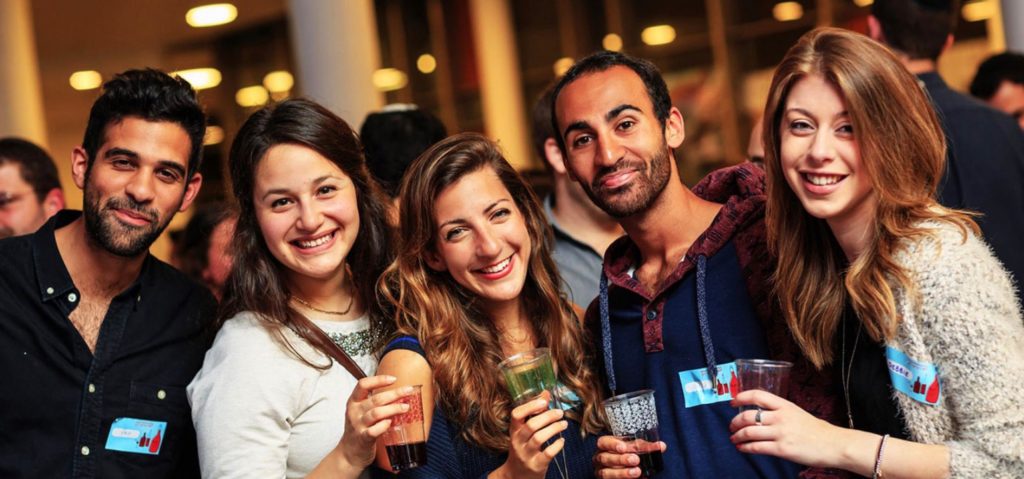
What’s fueling the growing phenomenon in Israel of datlashim – the Hebrew acronym for formerly religious Jews? And how big is it in real numbers?
Based on surveys conducted by the Central Bureau of Statistics, the Chotam religious lobbying organization found that, among the national religious public, only 46 percent of those who defined themselves as religious in 2002 remained so ten years later.
Jewish educator Aryeh Ben David has been trying to make sense of the numbers – both on a personal and professional level. The director of Ayeka, a Jerusalem-based institute that offers training in “soulful education,†Ben David says that too often religious parents blame themselves. That includes Ben David, whose own sons have left the religious path.
“If only we had sung different songs, practiced different rituals, or followed different halachic opinions, maybe things would have turned out differently,†he writes in a recent soul-baring column.
But what is happening now among religious teens and twentysomethings “is way beyond any individual tweaks we think we should or should not have done,†he continues. “The issue is systemic. Traditional Judaism is not working for this next generation.â€
Ben David says we are in the midst of a “radical disruption†prompted by the establishment of the State of Israel itself. Growing up as a ‘powerful majority,†he says, has been transformative. “For this generation, Jewish continuity has never been in doubt. Jewish existence is simply a fact. Individual Jews may slip away but the fear of the Jewish People not continuing is a worry of the past.â€
That creates a new reality where “obedience is no longer a prized value.†Strict adherence to Jewish Law is all about sustaining, Ben David emphasizes. “This generation does not know from obedience.â€
Aryeh Ben David is a friend; a deep and honest thinker and that rare religious educator who dares to confront his and his community’s core assumptions without having already defined a path to a future that gives him comfort. His analysis is precise and insightful. But it also misses the elephant in the room.
It’s not just that living as a Jewish majority gives young religious Israelis an “out†from following the traditions of their parents. It’s that Jewish Law hasn’t been speaking to Jews for a long while.
Indeed, as soon as the gates of the shtetl opened to the outside world, Jews rushed to drop observance. They set up secular Yiddish-speaking societies, opened theaters and made art. Some immigrated to Israel and became kibbutzniks and soldiers. Those who moved to America gravitated towards frameworks with less stringent forms of Jewish expression.
And while some did remain observant, it’s their turn now to drop out. In that sense, the modern datlash phenomenon is not unique. It is simply the second wave.
But there’s a fundamental difference between today’s datlashim 2.0 and their historical counterparts. Datlashim in 2017 are seeking to create their own forms of spirituality, just not those centered on “obedience.â€
They may spend a decade smoking pot and eating treife, but eventually, as they have children of their own, they consider ways to fuse their pasts and presents in a way that looks foreign to their parents but may very well be the future of the Jewish people.
For example, Trybe is a new age Jewish group in Los Angeles and New York that sponsors lavish Friday night “parties†that mix challah and blessings with haute cuisine (think honey-roasted kabocha squash dolloped with ricotta, braised short ribs and cauliflower rice). Its Yom Kippur services are pitched less as prayer and more as “spiritual restoration and communal vibes followed by a superfoods menu.â€
My initial thought when I read about Trybe was: “How is this Jewish?†Or as Mattie Kahn, who wrote about Trybe in BuzzFeed News, asks, “Is ‘Shabbat Shalom’ the new ‘Namaste?’â€
But that was the old religious me talking. My datlash self could imagine that if I were a Millennial in America, I might really dig a Trybe Shabbat.
Closer to home, the “Shalom al Lechem†project of the Jerusalem Village organization describes itself as a “social concierge and strategic matchmaker,†placing young Jews of differing practices at the same Shabbat table. Don’t know how to cook? No worries. Shalom al Lechem provides its own gourmet chef and a portable kosher kitchen, all expenses paid.
Yet, there’s another elephant in the room, and it’s one that threatens to spoil the post-denominational party. That same Chotam survey also found that the number of pupils in ultra-Orthodox schools had tripled in the last decade, seemingly offsetting any gains for datlashim.
Do the haredim hold the key to the future of religious Judaism? I ask Ben David.
The comparison isn’t fair, he replies.
“It’s hard to survey the haredi world because no one there is honest,†he tells me. “I personally know families who have exiled their children from their homes when they became non-religious. It’s ironic: Judaism was the first religion to get rid of child sacrifice. Now we are bringing it back. Families are sacrificing their children in the name of religion.â€
Ben David isn’t haredi and he would never dream of kicking out his non-observant kids. Still, “I thought that God wanted my sons to be a continuation of myself,†he writes.
For Ben David, his family’s new reality is a painful realization. For me (and for my own datlash children), it’s the energizing start to a transformative, authentically Millennial and radically Israeli dialogue.
I wrote about the future of datlashim first at The Jerusalem Post.
Picture in article from a Jerusalem Village event.

